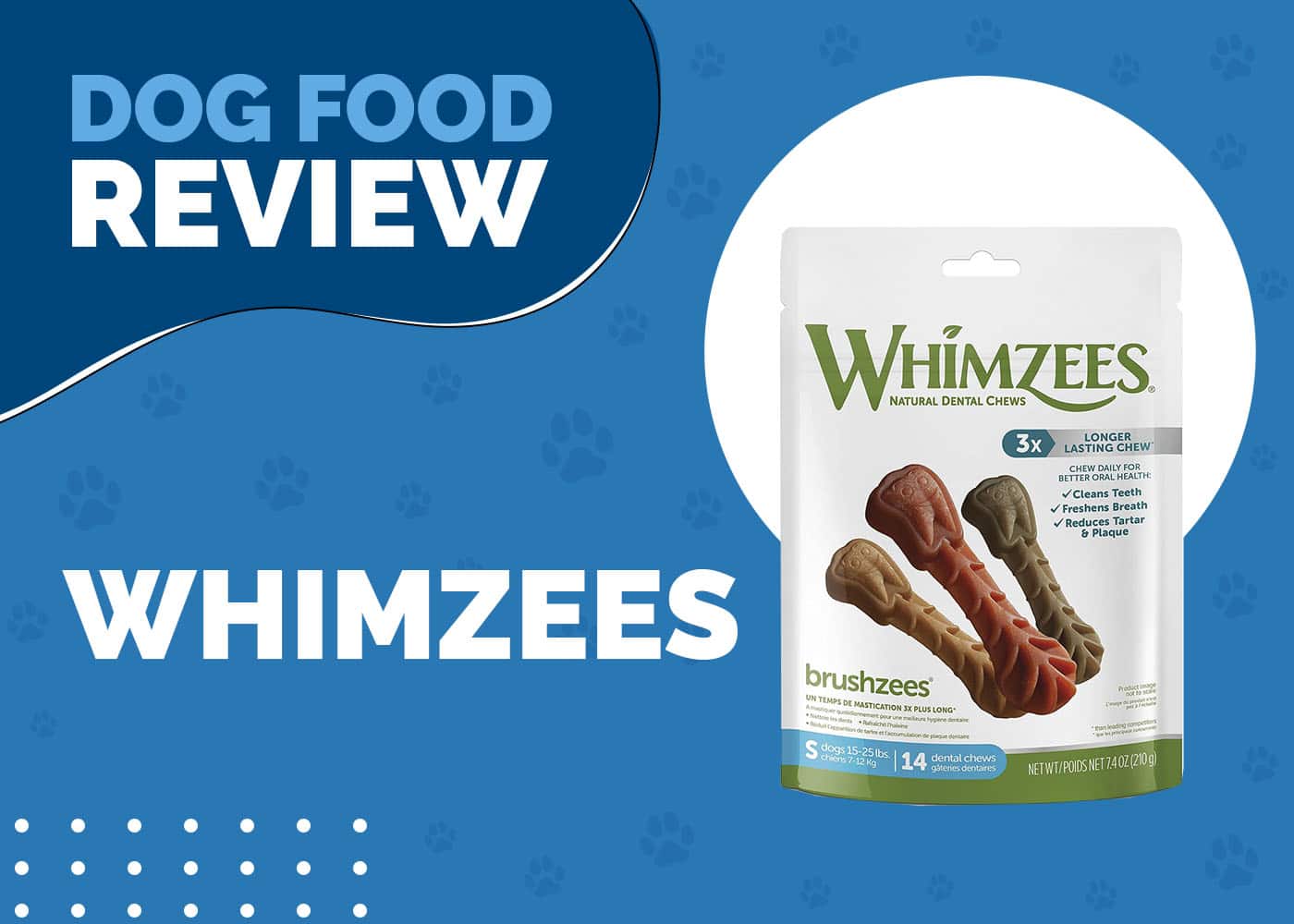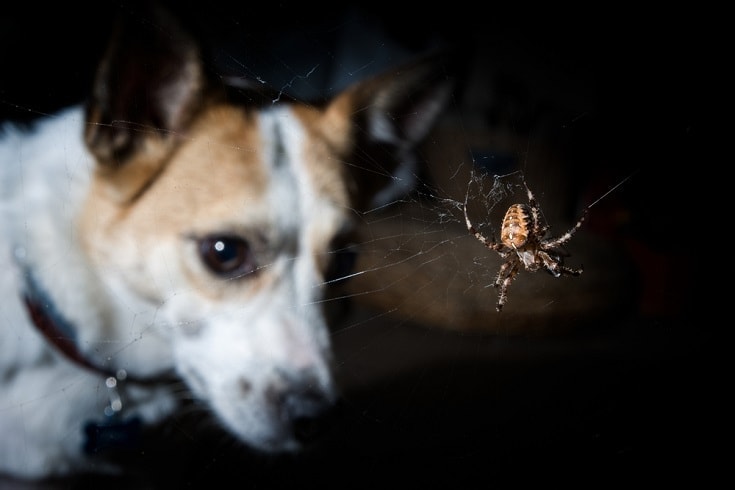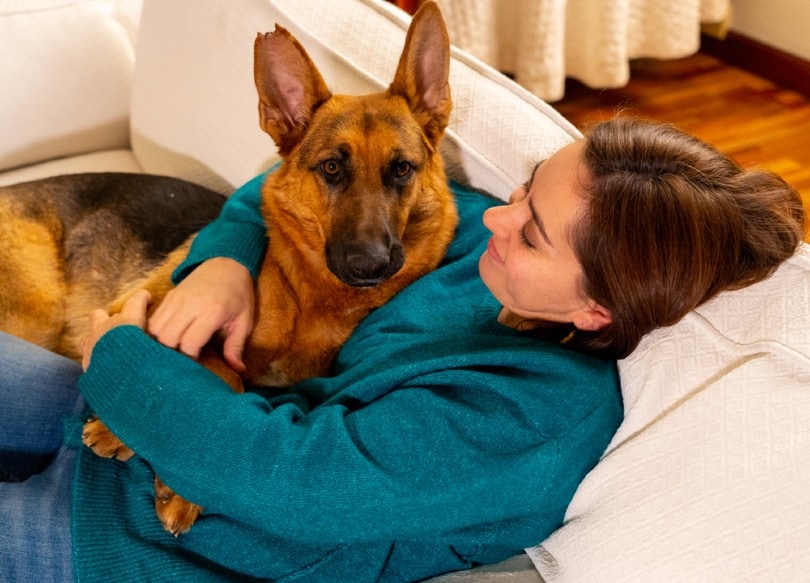Can Dogs Eat Mac and Cheese? Vet-Verified Considerations

Updated on
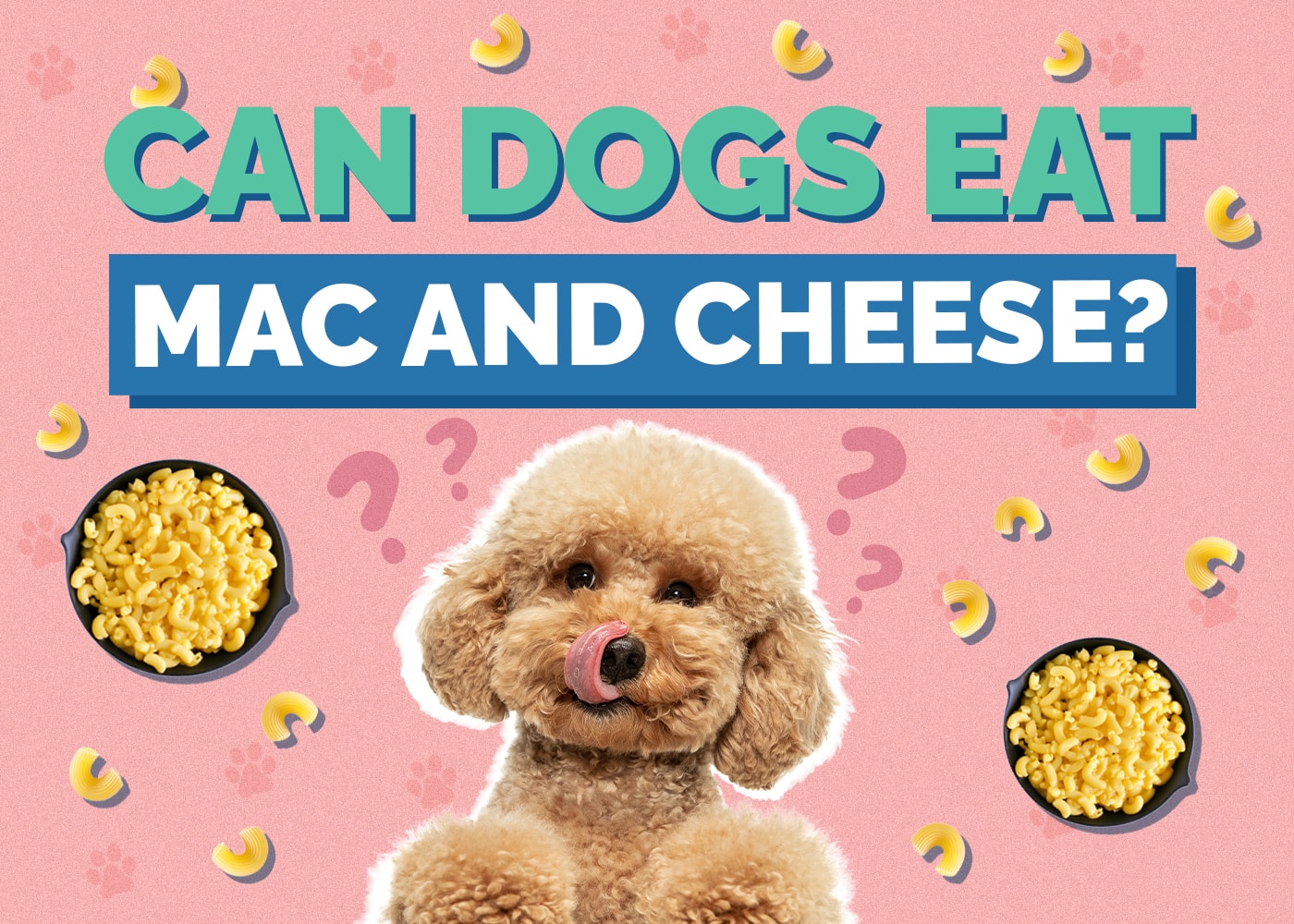
Mac and cheese, that ooey-gooey good stuff, is an irresistible comfort food. But alas, it isn’t good for your canine companions. It is not toxic; it’s just unhealthy.
Technically speaking, yes, dogs can eat mac and cheese. But should they? Nope, sorry, Rover—no cheese for you!
In this article, we’re going to tell you a bit about why mac and cheese isn’t an appropriate food for dogs, as well as give you a few ideas for delicious and nutritious treats you can give them instead.
Mac and Cheese History and Fun Facts
Pasta and cheese casseroles have been documented in the culinary world as far back as an Italian cookbook from the 14th century called “Liber de Coquina.” It was simple: usually just pasta, cheese (often parmesan), and butter.
Beloved by many, this hearty, cheesy dish persevered throughout history. When it made its way into French cooking, mac and cheese became inextricably linked with cheddar and thick, creamy sauces.
Mac and cheese first came to the United States after Thomas Jefferson encountered the dish in Paris and was lost to its cheesy seductions. Unable to reproduce it satisfactorily at home, Jefferson sent his head chef, James Hemings, to be the first American to train in traditional French cooking.
Jefferson so enjoyed the dish that he served it at many dinner parties, including state dinners. The first American recipe for macaroni and cheese appeared in the 1824 book “The Virginia Housewife,” and the rest, as they say, is history.

Can Mac and Cheese Be Bad for Dogs?
Though the smell has tempted many a canine into transgression, unfortunately, mac and cheese is not a healthy food choice for a dog. The seasonings, salt, and oils alone can cause a tummy ache for many dogs and the dairy, butter, and gluten even more so.

Lactose Intolerance
Unfortunately, like many humans, lots of dogs suffer from some level of lactose intolerance.
This common condition means that a creature lacks the enzyme that breaks down milk sugars, or lactose. Without this enzyme, undigested lactose ferments in the intestines and can cause vomiting and diarrhea.
If your dog can eat other dairy products without digestive upset, perhaps a few bites of mac and cheese won’t cause too much pain. But if your poor pup is lactose intolerant, all that cheese and milk will likely have a messy and uncomfortable aftermath.
Gluten Sensitivity
Mac and cheese is also usually made with a variety of wheat pasta. Though it is rare, some dogs can also have gluten intolerances or sensitivities, with similarly uncomfortable results.
It is also pertinent to note that the quality of the pasta varies wildly based on whether it is store-bought or handmade. Some canines have more trouble digesting wheat products that have been bleached and highly processed, regardless of whether there is a true gluten allergy, while other dogs are sensitive to gluten no matter the presentation.
Signs connected to canine gluten intolerance, sensitivities, or allergies include:
- Diarrhea
- Abnormal weight loss
- Hair loss
- Skin irritation, rashes
- Abnormal, involuntary movements
There seems to be a correlation between certain breeds and issues with gluten. For example, the Irish Setter seems to be particularly sensitive to it. Dogs of this breed that were fed this cereal from puppyhood seem to be more susceptible to developing gluten-induced enteropathy1.
Interestingly, another study found2 that almost 50% of Border Terriers diagnosed with paroxysmal dyskinesia, a disease that causes involuntary movements, had antibodies against gluten. After being changed to a gluten-free diet, these dogs had no more episodes, and only one relapsed twice after being fed a treat containing gluten. While gluten-triggered paroxysmal dyskinesia was once believed to be exclusive to the Border Terrier, a study3 performed in various other dog breeds showed similar results.
Artificial Ingredients, Processed Foods
Perhaps the worst kind of mac and cheese your dog could snarf down is the heavily processed and boxed kind. If it comes out of a package, rather than being homemade, the chances of it containing artificial colors, flavors, and other ingredients are high. Artificial dyes and preservatives are not great for canines simply because their digestive systems are not used to the new ingredients.
Processed foods most commonly cause issues like diarrhea, constipation, and vomiting. But some can even cause allergic reactions. None of these ingredients are toxic, though, and ingestion likely won’t require an emergency visit to the vet’s office unless your dog presents clinical signs or otherwise seems unwell.
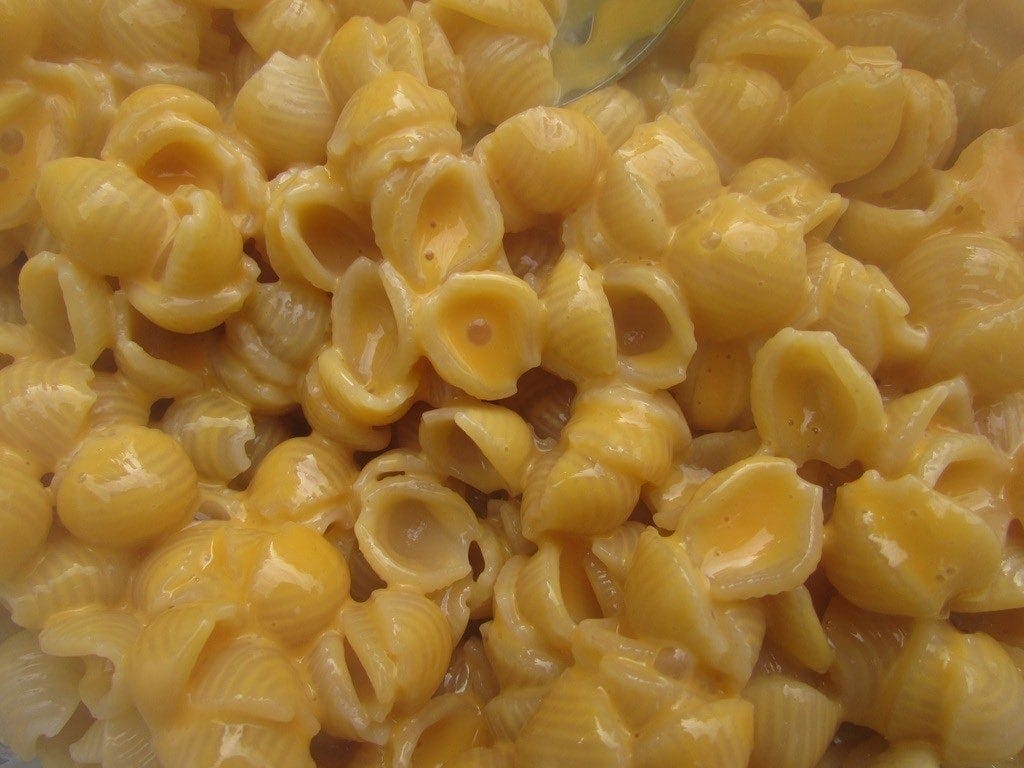
How to Care for a Dog That Has Eaten Mac and Cheese
If your pup just sneaks a mouthful, chances are they will not experience much discomfort. However, a dog that is able to gulp down a whole bowl—or more—of the gooey, delicious mess will probably become ill.
First, don’t panic. Unless there are added dog-toxic ingredients in your mac and cheese (i.e., chunks of onion, garlic, macadamia nuts, etc.) it is highly unlikely that you need to make an emergency vet visit.
Second, pay attention to your dog’s energy levels and bowel movements. Stay home if possible, as your dog will likely be having some gastric distress, such as vomiting and diarrhea. Plenty of fresh, clean water will help keep them hydrated.
Finally, provide ample opportunity for your dog to go outside when the urge strikes. That way, your dog will be more comfortable while dealing with their belly cramps, and hopefully, you won’t have to steam clean the carpet the next day!
Healthy Alternative Treats for Dogs
Just because a dog can eat something, that does not mean they should. But if your dog is the begging type and you want to get them off your case, consider some healthy alternative treats:
- Baked sweet potato
- Raw or cooked and unseasoned carrots, broccoli, or squash
- Raw pineapple, banana, or red bell peppers
- Fully cooked and unseasoned chicken, beef, fish, or shrimp
Your veterinarian will likely have even more suggestions for healthy alternatives to sharing your mac and cheese with Fido.
Final Thoughts on Feeding Mac and Cheese to Your Dog
The long and the short of it is that mac and cheese is just plain unhealthy for dogs.
Whether it is the dairy, gluten, artificial ingredients, or a combination of these, there is a significant chance that your dog could be subject to painful (and embarrassing!) gastric distress as a result of chowing down on those cheesy noodles.
It’s hard to say no to those puppy-dog eyes. But do your four-legged best friend a favor and don’t share your golden, gooey, cheese-tastic comfort food with them.
See also:
Featured Image Credit: Igor Dutina, Shutterstock



